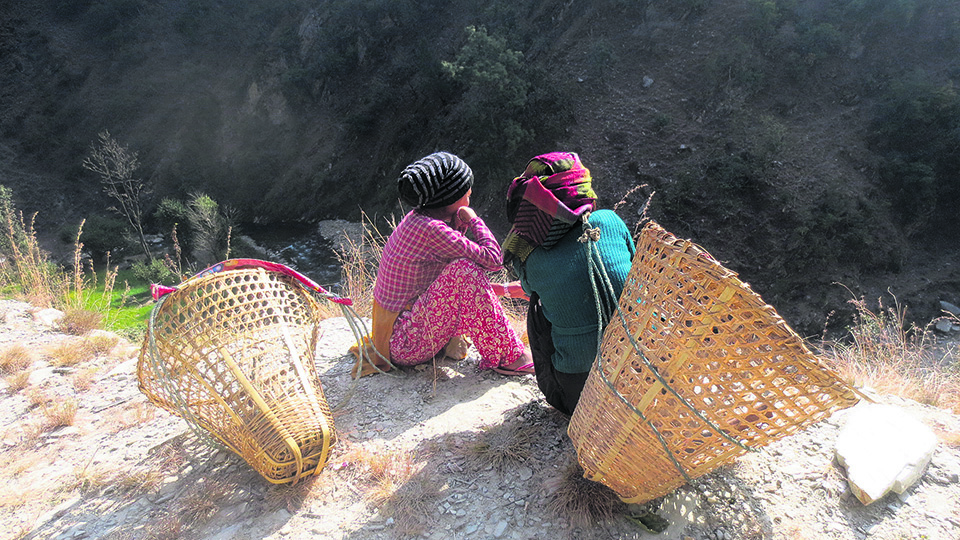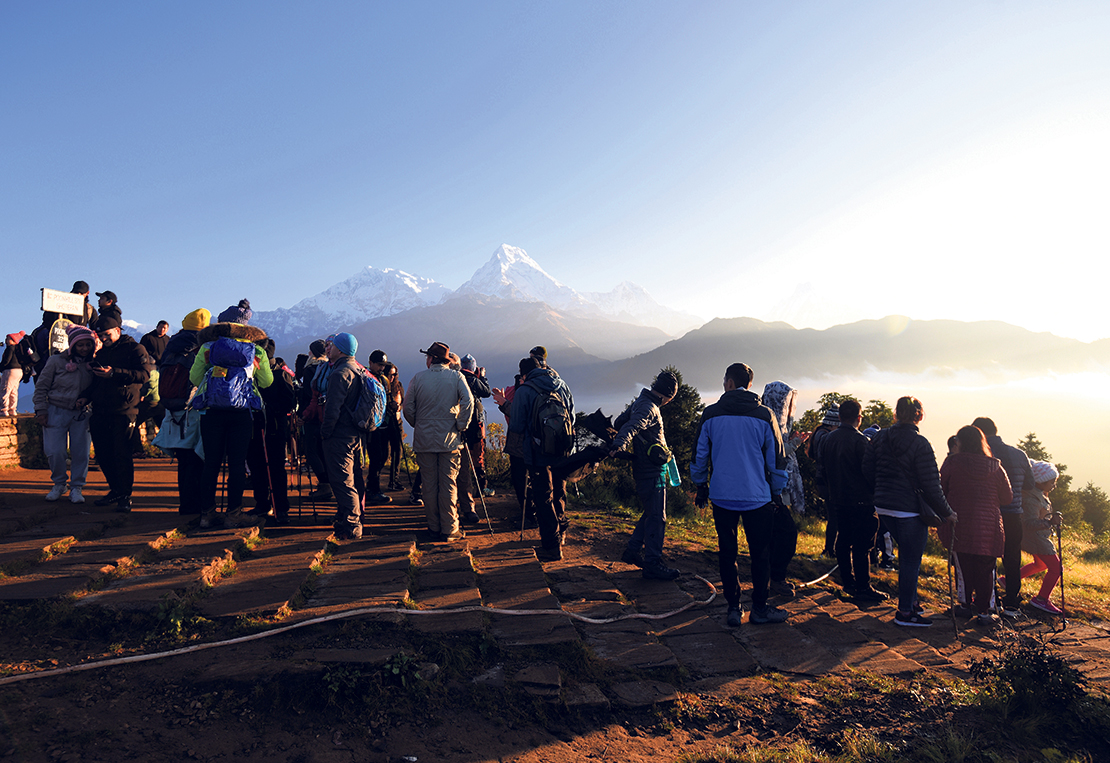
OR
‘Love marriage’ taking its toll on girls’ future
Published On: July 30, 2019 07:53 AM NPT By: Dinesh Subedi

ROLPA, July 30: Dipa Rawal, of Ghartigaun of Rolpa was studying in seventh grade when she quit school to get married. She was 16 then. Now she is 20, has a three-year-old son and her husband is working in Qatar to earn for the family.
Rawal regrets the early marriage. She feels that by doing so, she put her future at stake. “I have fallen in a trap from where I cannot get out,” she lamented.
It was not an arranged marriage. Rawal’s parents wanted her to complete studies before deciding on marriage. However, Rawal did not heed their advice when she fell in love with her neighbor.
“We started liking each other so much that we thought it would be better to get married. If we had not married, our parents would not have allowed us to be together,” she reported.
Melina Budha has a no different story. Her husband is in Qatar, too, while Budha is taking care of her toddler son all alone. A local of Thabang, she also feels ‘tired of life’ as she has scarce resources to raise the baby.
“Had I been single, or still living with parents, there wouldn’t be any problem. But I already have a child, and that worries me a lot,” said Budha.
Hers was also not an arranged marriage. Budha fell in love with a boy while she was studying just in the fourth grade. And she eloped with him soon after the relationship developed.
“I studied only till the fourth standard. And now there is no way for me to continue my studies. I feel that my entire life is going to be dark,” Budha said.
A lot of couples in Rolpa are found to have tied their nuptial knots at a premature age. And most of them did so willingly. As per the record of Rolpa District Hospital, 25 percent of girls below 20 years of age received babies at the hospital in the last fiscal year.
“It is very sad to young girls ruin their future. At the age of 20. they are already a mother of one or two babies. Neither are they educated or have a strong family support system,” remarked Dr Anil KC of the district hospital. “Early motherhood is not good from any angle. Many girls are living with severe health complications,” he added.
Child marriage was a sort of culture in Rolpa earlier. Elders would press for it. Over the years, child marriage is still prevalent, but a considerable number of couples follow the suit of Budha and Rawal. Since they are not allowed to mingle with each other freely unless they are married, young couples end up eloping or marrying.
“I got married because society would not tolerate seeing both of us together. You can move around freely with your loved one as a couple, only if you are married,” said Rawal. “Not just me, many of my friends felt like marrying due to the same reason,” she added.
Dr KC stated that early motherhood amid lack of proper care and nutritious food supply had affected children’s lives, too. “Malnourishment is a huge problem here. And the reasons behind it are apparent. They get married in such an early age that mothers neither have the knowledge nor the resources to provide proper care to the child and themselves,” said Dr KC.
Even though several government agencies and non-government organizations run campaigns against child marriage at times, such programs have not made a huge impact. Rolpa is one of the 14 major districts to practice child marriage. Several villages and towns in Madhes that shares border with India practice child marriage, basically due to dowry. In some other hilly districts including Sindhupalchowk, early marriage is still promoted in the name of ‘settling down on time.’
According to Dr KC, people’s mindset has to be changed in order to avert early marriages. “Elders must try to understand teenagers’ psychology. In the modern age, they have access to all kinds of digital tools, and they get exposed to several attractions. When they are not able to handle their emotions properly, accidents happen,” he said. He added that the society must get prepared to handle adolescents issues maturely. “But due to the lack of awareness, youths do not get such kind of support from elders.”
You May Like This

Gay couple allegedly told to fly separately so straight couple could sit together on Alaska Airlines
A gay couple was allegedly asked to give up their seats to accommodate a straight couple during an Alaska Airlines... Read More...

NC-led alliance faces tough challenge in Maoist stronghold Rolpa
ROLPA, Nov 3: The CPN (Maoist Center) still has a strong hold in Rolpa district, the place of origin of the... Read More...

Three unattended dead bodies found in Rolpa in a week
ROLPA, Oct 21: Three unidentified dead bodies were found in Rolpa district during past one week. The dead bodies were... Read More...



Just In
- 352 climbers obtain permits to ascend Mount Everest this season
- 16 candidates shortlisted for CEO position at Nepal Tourism Board
- WB to take financial management lead for proposed Upper Arun Project
- Power supply to be affected in parts of Kathmandu Valley today as NEA expedites repair works
- Godepani welcomes over 31,000 foreign tourists in a year
- Private sector leads hydropower generation over government
- Weather expected to be mainly fair in most parts of the country today
- 120 snow leopards found in Dolpa, survey result reveals







_20220508065243.jpg)








Leave A Comment